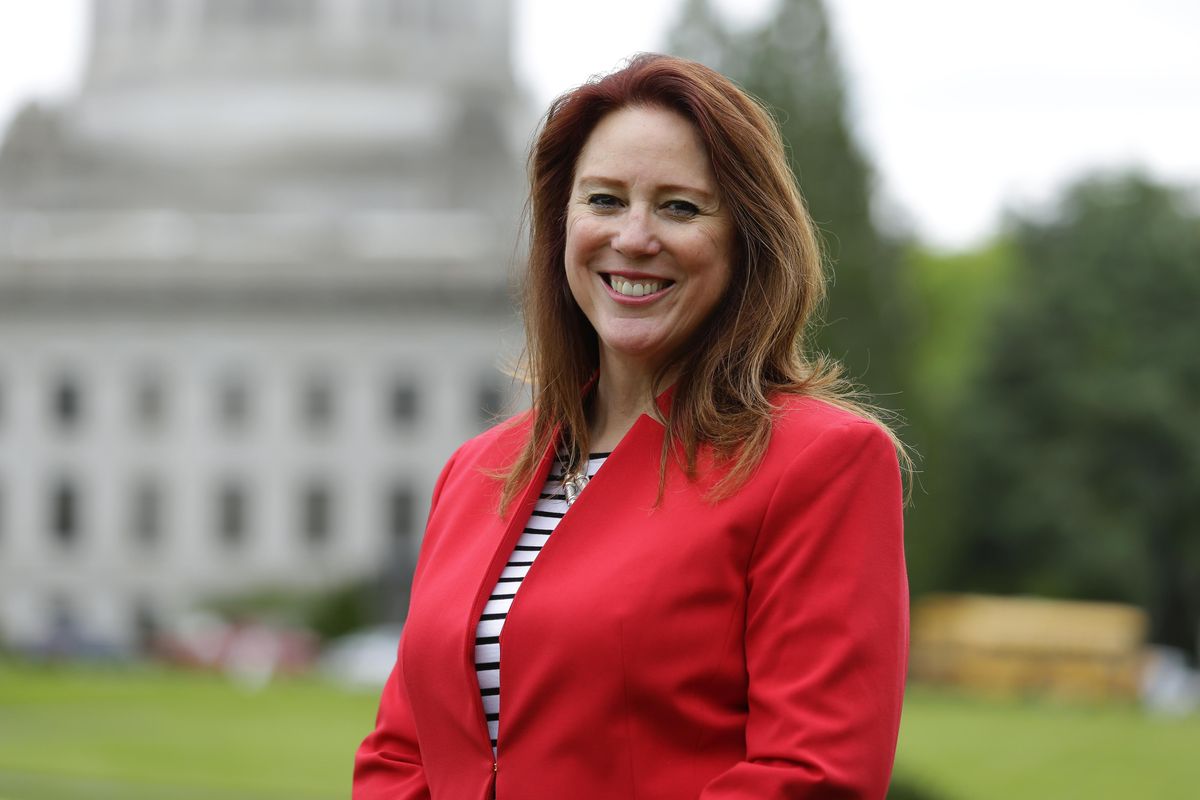Secretary of state Wyman could face tough test in re-election bid

OLYMPIA – Secretary of State Kim Wyman is the lone statewide elected Republican in Washington state, the latest in a line of GOP chief election officers who have held the office for the last 52 years.
Wyman, who narrowly won her election four years ago, is facing another potentially tough fight against a Democrat this year as she seeks a second term: Tina Podlodowski, a former Microsoft manager who served on the Seattle City Council for one four-year term in the 1990s and who most recently served as an adviser to current Seattle Mayor Ed Murray in 2014.
Podlodowski has raised about $230,000 in the race so far, compared with the $120,000 raised by Wyman. Libertarian candidate Tim Turner has raised about $300. Both Wyman and Podlodowski are expected to advance through the state’s “Top 2” primary on Aug. 2 and face off against each other in the November election.
In addition to leading elections, the secretary of state also serves as chief corporations officer and supervisor of the state archives and state library.
Wyman has more than two decades of experience in elections work. Before being elected to the state’s top elections job in 2012, she had previously served for a decade as the Thurston County auditor. Before that, she was the county’s elections director.
“I have a proven track record of making elections accessible and secure,” she said. “For me, this profession is about making sure our elections in Washington state are fair and accurate and impartial.”
Podlodowski has criticized Wyman for low voter turnout in recent elections and for not canceling Tuesday’s presidential preferential primary, saying that taxpayer money should be spent on other things, especially because Republicans already know who their nominee is and Democrats ignore the election. While, under state law, Wyman doesn’t have the authority to cancel the presidential primary, Podlodowski argued that Wyman should have done more to push the Legislature to cancel the primary, as it last did in 2012 for budget reasons.
Washington has both a presidential primary and a caucus system, but Democrats use only their caucus system to allocate 101 delegates to candidates at the national convention. Bernie Sanders overwhelmingly won the state’s Democratic caucuses on March 26. Republicans will allocate all 44 of their delegates from the results of statewide primary, which offers little intrigue because Donald Trump is the last remaining candidate in the Republican contest.
But Wyman noted that there were more than a dozen candidates still in the Republican contest and a handful of Democrats still competing when the Legislature was in session earlier this year. More than 1 million ballots have already been cast in the primary, and Wyman said that even if the nominating process is already set, voters “want their voices heard.”
“I still think voters think this is meaningful,” she said.
Podlodowski’s call to cancel the primary, coupled with her criticism related to the historically fluctuating voter turnout “points to how little she understands the office,” Wyman said.
“She’s doing everything she can to deflect that her resume doesn’t have any experience running an election,” she said.
Podlodowski brushed aside that critique, saying that that an elections system is “really no different than many of the complex business systems that I’ve run.”
She said she’d implement performance audits on each of the state’s 39 counties to assess how they are doing on everything from election-related costs to registrations. She also wants to see free postage for ballots and same-day voter registration and preregistration for 16- and 17-year-olds.
“I think we could do a better job,” she said.
While Republicans have had a firm hold on the office for decades, this year’s presidential election, with Trump at the top of the Republican ticket, could have an impact, independent pollster Stuart Elway said. Wyman has said she won’t weigh in on the presidential race, saying that the nature of her job requires that she not advocate for or against any particular candidate.
But Elway said that it’s inevitable that there will be some down-ballot effects on state races. “We don’t know the extent and how far it reaches,” he said.